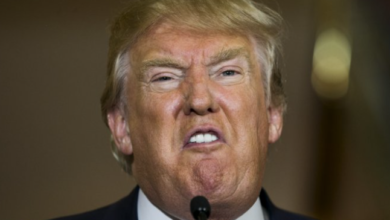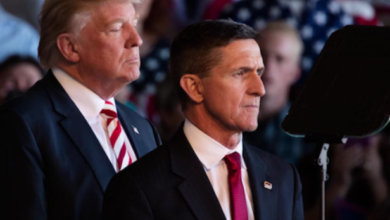Thus I Pardon Ye

Of the presidential pardons that rained down today, there are likely certain ones that really stick in our craw. Some are deeply offended by the congressmen who admitted their guilt to swindling the country — who got out of jail free: Duncan Hunter, Chris Collins, and Steve Stockman.
And then others may be angered by certain other pardons he issued, that represent a flouting of the conventions — and possibly laws — surrounding the concept that a federal official should not act to wipe out the crimes of someone when he has been involved with the actions of that person. In fact, George Papadopoulos, 2016 Trump campaign advisor, who pled guilty to lying to federal officials during the Special Counsel’s investigation into Russian campaign meddling, and Alex van der Zwaan, an attorney who also pled guilty to similar charges, received their pardons today. Both men worked with the Trump campaign.
And then there were the murderers. On Sept. 16, 2007, Blackwater contractors in Iraq opened weapons fire on a civilian crowd and civilian vehicles in a Baghdad square, resulting in the deaths of 17 Iraqi citizens and wounding of 27 more. After an investigation, the Iraqi government indicated that the shootings were unprovoked. Iraq’s statements on the matter contradict the Blackwater contractors’ statements that they were fired upon, but because American contractors largely have immunity in many scenarios, this became a controversial and deeply disputed case. Because of details such as the Blackwater guards had apparently shot in all directions around them, killing children, laborers nearby, and an old man on a scooter, the optics of this case are just horrible. Nick Slatten was the individual identified by a U.S. court as likely the first one to fire shots, and was consequently sentenced to life in prison. The other Blackwater employees sentenced were Dustin Heard, Evan Liberty, and Paul Slough.
Four others had their charges dismissed. Erik Prince, founder and CEO of Blackwater, had figured prominently in the Mueller investigation due to Prince’s meetings in the Seychelles with a sanctioned Russian banker, thought to be hidden back-channeling strategy for the incoming Trump administration.
“I’m out of adjectives,” James Clapper, former Director of National Intelligence, said today of these particular pardons granted by Donald Trump. “It’s terrible… they abused the availability of the weapons available to them … this is a direct assault on the values of this country.” Trump, he indicated, seemed to be trying to erase culpability of convicted criminals, ones involved in the Russia scandals and more. “He thinks he’s somehow erasing the record of the crimes these people committed,” Clapper said.
Pardons, however, do not erase guilt. They in fact indicate guilt, but erase one’s penalty for it. When you accept a pardon, you are basically admitting that you committed that crime — if it’s already been adjudicated. For blanket pardons, which the public anticipates Trump to be soon granting to friends and maybe relatives, the issue is less clear.



